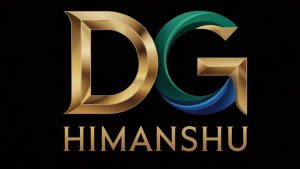Introduction
Digital marketing has undergone a remarkable transformation over the past two decades, evolving from basic online advertising to a complex ecosystem that leverages advanced technologies and data-driven strategies. As consumer behavior continues to shift and technology advances, digital marketing trends are constantly evolving. This article explores the key trends that have shaped digital marketing, current innovations, and future predictions for the industry.
Digital marketing began in the 1990s with the advent of the internet and the launch of the first web browsers. The initial focus was on simple banner ads and email marketing campaigns. Websites served as digital brochures, and businesses used basic online advertising to drive traffic.
Email marketing
One of the first digital marketing tools, email marketing, allowed businesses to reach consumers directly in their inboxes. Despite the rise of spam, targeted email campaigns proved effective for engaging customers
automation allows businesses to send targeted messages to their audience based on specific actions or timelines. This not only saves time but also ensures that your emails are relevant and personalized, which can significantly improve engagement and conversion rates. Here are some key benefits.
content marketing
The focus shifted to creating valuable, relevant content to attract and retain customers. Blogs, videos, and infographics became popular tools for content marketing, helping brands establish authority and trust.
BANNER ADS
The introduction of banner ads in the mid-1990s marked the beginning of online advertising. Early banners were simple and focused on driving traffic to websites.
social media marketing
Platforms like Facebook, Twitter, and LinkedIn provided businesses with unprecedented access to consumers. Social media marketing became a cornerstone of digital strategies, enabling brands to interact with customers, share content, and build communities.
Voice Search and Conversational Marketing
With the rise of smart speakers and voice assistants like Alexa and Google Assistant, voice search is becoming more prevalent. Brands will need to optimize their content for voice search by focusing on natural language and conversational queries.
Hyper-Personalization and Data-Driven Marketing
Consumers increasingly expect personalized experiences. Brands that harness big data and machine learning to deliver tailored content, product recommendations, and dynamic pricing will gain a competitive edge.
Sustainability and Ethical Marketing
Consumers are becoming more conscious of environmental and social issues. Brands that demonstrate a commitment to sustainability and ethical practices will appeal to socially responsible customers and enhance their brand reputation.
Artificial Intelligence (AI) and Automation
AI has already begun transforming digital marketing by enabling personalized customer experiences, predictive analytics, and chatbots. Over the next decade, AI will continue to enhance marketing strategies, automating repetitive tasks and optimizing campaign performance in real time.
Influencer and Community-Based Marketing
Influencer marketing will continue to evolve, with brands collaborating with micro and nano influencers who have highly engaged audiences. Community-driven marketing, where brands build loyal customer communities, will also play a vital role in brand advocacy.
Video Content and Interactive Media
Video content remains a dominant force in digital marketing, with platforms like YouTube, TikTok, and Instagram Reels leading the way. In the next decade, augmented reality (AR) and virtual reality (VR) will further enhance interactive media experiences, allowing for immersive brand storytelling
Privacy and Data Protection
As data privacy regulations become stricter (e.g., GDPR and CCPA), businesses must prioritize transparency and consumer trust. Marketers will need to find innovative ways to gather and utilize data while respecting user privacy.
The Power of Video Marketing
Video continues to be a dominant force in the world of digital marketing, and it will only gain momentum throughout 2025. is currently the go-to medium for engaging younger audiences, and will continue to be so next year, with the popularity of TikTok, Instagram Reels, and YouTube Shorts growing steadily. Consumers are increasingly turning to videos not just for entertainment but also for shopping inspiration, product reviews, tutorials, and behind-the-scenes brand content.
Video content (which our team can also if desired) is already a key tool for many of the successful campaigns run by our digital marketing agency in Surrey. By 2025, interactive videos, shoppable content, and live streaming will become even more important. Our goal is to help businesses craft video content that resonates with their target audience, while also leveraging these new formats to drive conversions.
Conclusion
Digital marketing has come a long way from its humble beginnings. The evolution from basic online advertising to sophisticated, data-driven strategies reflects the rapid pace of technological advancement and changing consumer behavior. As we look to the future, digital marketers must stay agile, embracing new technologies and trends to create engaging, personalized experiences that meet the needs of the modern consumer. The ability to adapt and innovate will be key to success in the ever-evolving landscape of digital marketing

